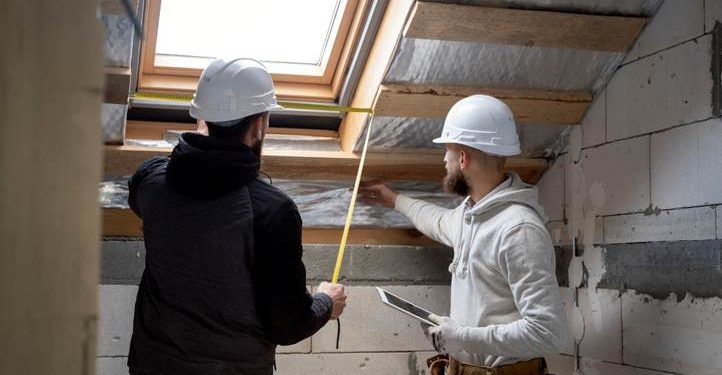Since property values are continuously rising in the bustling city of London, homeowners and landlords are looking for smart and cost-effective ways to add more space and value to their property. Both the flat conversion and loft conversion are among the most popular options, offering cost-effectiveness and a range of benefits. However, both types of conversion fulfil different needs in different circumstances. Read this guide before making a decision.
Understanding Flat Conversions
Flat conversion is a transformation technique that turns a larger property, such as a townhouse, into several smaller, self-contained flats. This type of conversion is highly popular in metropolitan areas, such as London, where space is at a premium and has higher rental demand. However, a flat conversion requires careful planning, as it often involves obtaining planning permission and meeting specific building regulations.
Let’s learn about flat conversion London in detail here.
Benefits of a Flat Conversion
Increased Rental Income: Flat conversions will convert a single property into several flats that you can separately rent out, increasing your rental income.
Higher Property Value: If the flat conversion is well-designed, it will give a significant boost to the property’s value.
Greater Market Demand: Flats are always in high demand, making flat conversion a wise and sought-after investment.
Versatile Use: Flats are suitable for homeowners looking to downsize while generating rental income.
Types of Flat Conversions
Single Dwelling to Multiple Flats: Splits a large house into self-contained flats.
Maisonette Conversion: Creates a two-level flat within an existing property.
Studio Flat Conversion: Converts a property into compact, open-plan studio apartments.
Basement Flat Conversion: Converts the lower level into a self-contained flat.
Airspace Development: Builds additional flats on top of an existing building.
What are the Loft Conversions?
Loft Conversions are a highly popular and in-demand technique for adding a liveable area to your house without changing its footprint. It repurposes the unused loft area and turns it into a well-lit, airy and accessible living space, such as a bedroom, studio or home office. Some loft conversions, such as Velux loft conversions, are highly budget-friendly and do not require significant changes to the building.
Let’s learn about loft conversions in detail!
Benefits of a Loft Conversion
Maximises Existing Space: Loft conversion utilises the unused attic space and does not require any footprint changes.
Cost-Effective Expansion: Loft conversion is typically a cost-effective option as compared to flat conversion.
Increased Property Value: A well-designed loft conversion will boost your property’s value, making your house attractive to potential buyers.
Minimal Disruption: It causes minimal disruption as it takes place inside the building and in the attic space.
Energy Efficiency: If properly designed and insulated, loft conversions can contribute to your home’s energy efficiency.
Types of Loft Conversions
Dormer Loft Conversion: Adds a box-shaped structure to the roof, increasing headroom and floor space.
Hip-to-Gable Loft Conversion: Extends a sloping roof by converting the hip into a vertical gable, creating more usable space.
Mansard Loft Conversion: Alters the roof structure to create a nearly vertical wall, ideal for maximising loft space.
Velux (Rooflight) Loft Conversion: Keeps the existing roof shape and adds skylight windows for natural light.
L-shaped loft Conversion: Combines two dormer extensions at different angles, often used for period properties.
Choosing the Right Option for Your Home
There are several factors that you need to consider while choosing between a loft conversion and a flat conversion, such as:
Available Space: Having an underused attic makes loft conversion a more reasonable option.
Investment Goals: If you’re looking for rental income, a flat conversion might be the better choice.
Planning Permissions: Loft conversions often fall under permitted development, while flat conversions usually require planning approval.
Budget Considerations: Although flat conversions offer more rental income, they are complex and require more budget as compared to loft conversions.
Final Thoughts
Both flat conversions and loft conversions are excellent ways to enhance your property. If you’re aiming for increased rental income and property segmentation, a flat conversion is a great investment. On the other hand, if you want to expand your living space without major structural alterations, a loft conversion is a fantastic option.











































































